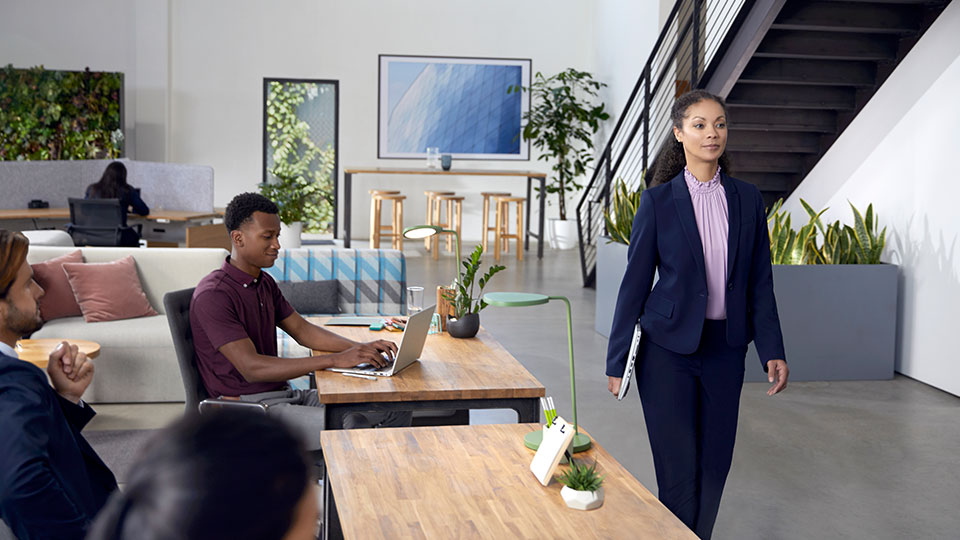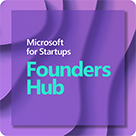Back in 2014, Erika Brodnock was unable to convince the millionaires on “Dragon’s Den” (the UK version of “Shark Tank”) that she had an investable business. By the time the episode aired, Karisma Kidz was already available as a mobile app and a series of toys for helping 3-8 year olds develop emotional skills and deal with stress. Today, mother-of-five Erika is a TV pundit and PhD candidate. She is also the founder and CEO of Kami, an app that marries cutting-edge AI with human expertise to provide intelligent support to working parents.
Given her schedule, we very were excited for Erika to sit down with us and share her story.
Thanks for talking to us, Erika, can you tell us about your background?
First and foremost, I’m a mum to five amazing children. I started that journey at a fairly young age, so I understand first-hand the difficulties faced by working parents. In 2012, I was privileged to build a software company Karisma Kidz, a platform that helps children develop emotional intelligence skills through games. It ended up being preloaded to more than 15 million devices.
Alongside that, I am one of the resident parenting experts for Sky News where I provide parents with no-nonsense, non-judgmental, friendly, and hopefully helpful, advice.
What led you to found Kami?
I received my MBA and went on to pursue a research fellowship at King’s College London. I met my co-founder there, Dr. Helen Yannakoudakis who holds PhDs in both Computer Science for Machine Learning and in Natural Language and Information Processing. We quickly saw the potential of marrying my background on the parenting side with her expertise on the natural language processing side.
Tell us a bit more about Kami.
Kami acts as an intelligent support assistant that helps working parents and their employers, by offering round-the-clock support and guidance, as well as personalized data insights. Specifically, we’re focused on easing people through the journey of being new parents as they transition back into working environments. Traditionally, you either had to rely on other parents for advice or comb through forums and messaging boards to find answers to your questions. With Kami, parents get answers to common questions instantly and seamlessly connect with parenting experts. from midwives and doulas, to sleep consultants and psychologists.
We just launched in January, so it’s still early days but we have had over 7,000 parents engage with the site in that time.
Parenting advice always seems like a moving target, with things changing from generation to generation.
Exactly. When my mum was pregnant with me, she was allowed to eat mayonnaise. By the time I had my children, it was an absolute no-no. Today, many people are choosing to raise their children as vegans, so it’s always evolving.
I love how Kami is so tied to your personal experience as a working mother. It must be gratifying to put something out in the world that is making a difference in people’s lives.
Yes, it feels good to help because I’ve been in their shoes. Last week, we had a mum onboarding the platform who shared that her baby was feverish and not sleeping through the night. Taking into account the child’s age, the guidance was that the baby was teething and suggested that she try an over-the-counter teething powder. A few days later she wrote back thanking us, saying the treatment resulted in the first good night’s sleep in almost a year.
What advice do you have for other founders out there, particularly founders of color?
I’m not your archetypal Silicon Valley or Shoreditch founder. I understand that is something that I have to work through. So I embody that in my attitude. If they’re not going to let me in the door, then I’m coming in through the window, because I’m not going home.
In terms of advice, I urge founders to ask better questions. Avoid framing questions in the negative. Instead of asking, why isn’t this working out for me? Ask, how can I make this work? Then find people who can help you with specific challenges. You would be surprised how many people say yes when you just ask the question. Get on LinkedIn and reach out. The problem is, is that people don’t ask, or if they do ask and face rejection, they give up. My advice is to ask, ask and ask again.
What do you do when people say “no”?
I’m very, very used to hearing “No.” I’m a black woman founder from a working-class background and people say, “No,” to me all the time. I collect them.
How do you mean?
When I hear, “no,” I remind myself that the law of probability says that every time I hear a “no” then I’m that much closer to getting a “yes.” It hurts a little bit less if you think of it that way. As people of color, we have been told for generations that we have to be 10 times as good, to get half as much. I would love to live in a world where it wasn’t true anymore, but that’s not the world we live in. So collect “nos” until you start collecting “yeses.”
What has it been like working with Microsoft so far?
A couple of things have stood out about working with Microsoft. The first is that we’re selling to corporations to provide Kami to their employees with children. Having access to Azure has taken the pain out of thinking about compliance, certification and, above all, security which has been immensely helpful to us as we get off the ground. The second thing is the technical support we receive through Microsoft for Startups Founders Hub has allowed us troubleshoot problems incredibly quickly.
To find out more about Microsoft for Startups Founders Hub, visit us here.











